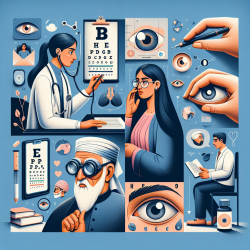The Shocking Truth About Personalized Medicine: What Every Practitioner Must Know!
As a practitioner focused on improving outcomes for children, you may wonder how the complex world of personalized medicine and cancer drug resistance impacts your field. The research article titled “Just Caring”: Can We Afford the Ethical and Economic Costs of Circumventing Cancer Drug Resistance? by Leonard M. Fleck provides critical insights that can inform your practice and encourage further research.
Understanding the Problem
The age of personalized medicine, marked by targeted therapies like imatinib (Gleevec), promised revolutionary changes in cancer treatment. However, the reality is more complex due to the extraordinary heterogeneity and resilience of tumors, leading to cancer drug resistance. This phenomenon poses significant challenges to personalized medicine, which aims to target the primary driver of a tumor. Once that driver is defeated, genetic sub-populations can take over, rendering the therapy ineffective.
Economic and Ethical Considerations
The economic burden of cancer therapies is staggering. In the US, health care costs have risen dramatically, with targeted cancer therapies contributing significantly. These therapies, while promising, often yield marginal benefits at high costs, raising ethical questions about health care justice and resource allocation.
Implications for Practitioners
Practitioners must consider the ethical and economic implications of personalized medicine. The research suggests a rational combinatorial approach, using multiple drugs to contain cancer and adapt to tumor evolution. However, this strategy is fraught with challenges, including potential toxicity and vast therapeutic combinations.
- Understand the limitations of personalized medicine in addressing cancer drug resistance.
- Consider the ethical implications of resource allocation in health care.
- Stay informed about the economic impact of new therapies on health care systems.
Encouraging Further Research
The complexity of cancer drug resistance underscores the need for ongoing research. Practitioners should advocate for studies that explore the effectiveness of combinatorial therapies and the development of predictive biomarkers. Such research is crucial for refining personalized medicine and ensuring ethical and economic sustainability.
To read the original research paper, please follow this link: “Just Caring”: Can We Afford the Ethical and Economic Costs of Circumventing Cancer Drug Resistance?










